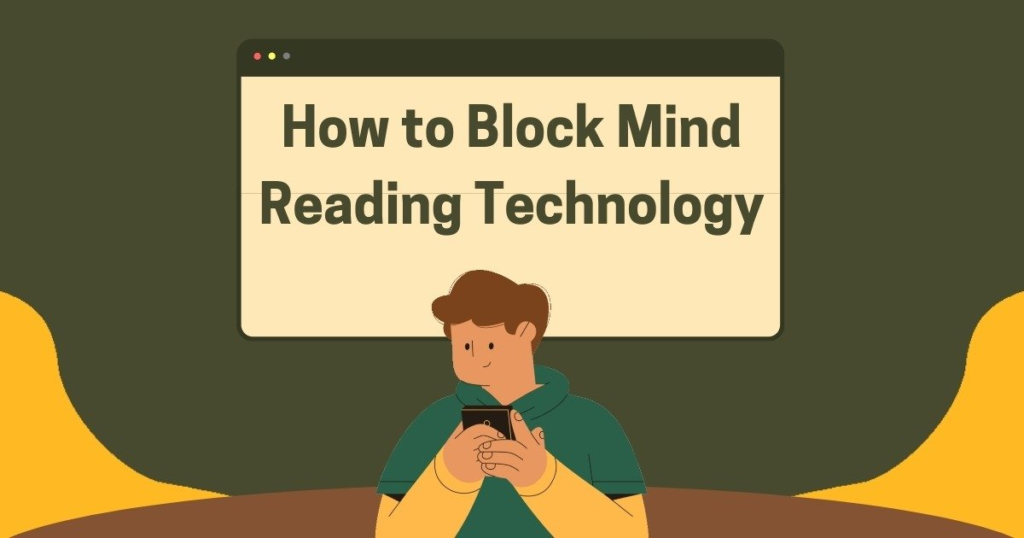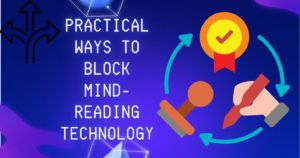
Introduction
In our rapidly advancing technological world, the question of ‘How to Block Mind Reading Technology’ has swiftly become a pressing concern. The progress of mind-reading technology has sparked both intrigue and apprehension. While these innovations hold immense potential for transforming sectors like communication and healthcare, they also pose significant privacy and ethical dilemmas. This essay will delve into the realm of mind-reading technology, its implications, and viable strategies for countering it.
Understanding Mind-Reading Technology

The science behind technologies that read minds
Mind-reading devices, whether they take the form of implants or headphones, capture brain activity. These ingenious contraptions translate brain waves into text or graphics, effectively decoding our intentions, emotions, and thoughts. This capability, with its potential applications ranging from law enforcement to medical diagnosis, is both fascinating and concerning.
Growing popularity of mind-reading devices
Technology for reading minds has advanced significantly in recent years, with a quick rate of growth. The development of mind-reading equipment by scientists raises concerns about the data these gadgets would gather, who would have access to it, and how it would be utilized.
Privacy problems and ethical considerations
The development of mind-reading technology has raised critical moral issues. There is a severe risk of privacy invasion since these technologies can reveal our most private thoughts to others without our permission. The potential for security breaches also looms large, as these devices could be compromised and used to steal private data, posing a significant threat to our personal and digital security.
Practical Ways to Block Mind-Reading Technology

The Faraday Cage
A Faraday cage is a valuable tool for blocking mind-reading technologies. This aluminium or wire mesh cage can prevent electromagnetic waves that may be used for mind reading.
Glasses that Reflect Infrared
Infrared-reflecting glasses provide an additional line of defence against mind-reading technologies by blocking digital surveillance devices like face-scanning cameras and face readers.
bracelets made of copper
Another valuable method for thwarting mind-reading technologies is a copper bracelet. They are thought to change the electromagnetic fields that these devices rely on.
Mind-reading-blocking applications
Protection may also be obtained by software programs, such as mind-reading blocking applications. These applications encrypt brain wave patterns using complex algorithms, which makes it harder for mind-reading devices to understand your ideas.
Blocking devices that read minds
Consumer electronics specifically designed to shield your thoughts from mind-reading technologies have been created. By putting up a wall between your brain and outside sensors, these gadgets prevent your neurological impulses from being intercepted.
Practices of mindfulness
Developing mindfulness may be an effective way to protect yourself against mind-reading technologies. Being totally present and conscious of your thoughts and behaviours may safeguard your mental privacy
The Role of Advocacy
Advocacy is essential to controlling the development and use of mind-reading technology. Each one of us can contribute to the responsible development and use of this technology by speaking out and supporting individual rights to privacy. By doing so, we can actively shape the future of this technology and ensure it is used in a way that respects our privacy and ethical boundaries.
Potential Advantages of Mind Reading Technology in the Future
Though there are specific worries, mind-reading technology may have advantages. It has the potential to completely transform healthcare and communication by giving physicians new diagnostic tools and enabling those with communication challenges to express themselves.
Potential abuses
But there’s also a chance that mind-reading technology will be abused. It could be used for mind control, manipulation, or even eavesdropping on individuals. Strong safety regulations and moral standards are thus crucial.
Conclusion
Although mind-reading technology has great potential, there are many ethical and privacy concerns. It’s not enough to simply be aware of these issues. It’s critical to keep up with these technological developments and take proactive preventative measures to safeguard your mental privacy. Encouraging the appropriate development and use of these technologies will be crucial as we traverse this new frontier.
.
